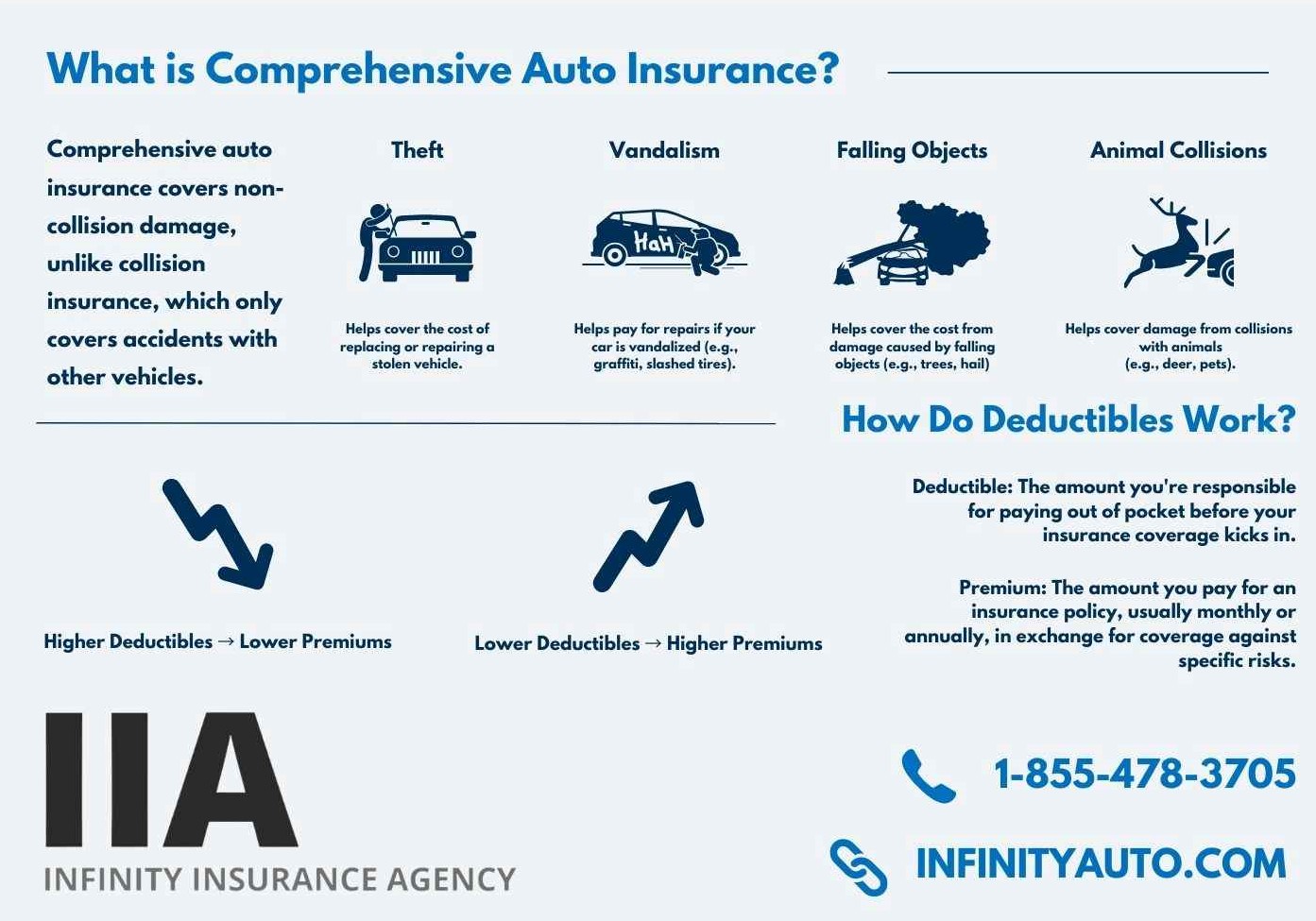Comprehensive auto insurance can provide a robust shield against a variety of potential risks offering peace of mind on the road. But what exactly does comprehensive insurance entail, and is it the right choice for you? Let's delve into the nuances of comprehensive coverage to unravel its benefits and intricacies.
What is comprehensive insurance?
Comprehensive insurance, often referred to as "comp coverage," is a type of auto insurance that can provide financial protection against damages not caused by a collision. While collision insurance primarily covers damages incurred from accidents with other vehicles or objects, comprehensive insurance expands the umbrella of protection to include a broader range of specific perils.

What does comprehensive insurance cover?
With an applicable deductible, comprehensive insurance offers coverage for various non-collision incidents, such as:
- Theft: In the unfortunate event of your vehicle being stolen, comprehensive insurance can help cover the cost of replacing or repairing the stolen vehicle.
- Vandalism: If your car falls victim to vandalism, such as graffiti or slashed tires, comprehensive coverage can help pay the bill for repairs.
- Falling Objects: Whether it's a tree limb, hail, or debris from construction, comprehensive coverage can be extended to help protection against damages caused by falling objects.
- Animal Collisions: From deer to domestic pets, collisions with animals can wreak havoc on your vehicle. Comprehensive insurance steps in to help pay for the resulting damages.
What does comprehensive insurance not cover?
While comprehensive coverage can offer different coverage for your auto, there are certain scenarios it doesn't typically cover:
- Collision with Another Vehicle: As the name suggests, comprehensive insurance excludes coverage for damages resulting from collisions with other vehicles or physical objects. For such incidents, collision coverage would be necessary.
- Medical Expenses: Comprehensive insurance primarily focuses on vehicle damages and does not cover medical expenses for injuries sustained in an accident. Personal injury protection (PIP) or medical payments coverage would be required for your medical expenses.
- Customization and Upgrades: If you've invested in customizations or upgrades for your vehicle, such as a high-end sound system or custom rims, comprehensive insurance may not fully cover these enhancements. Additional coverage options may be necessary to protect aftermarket additions.
Call us today at 1-855-478-3705 to discuss a quote from our knowledgeable agents!

How do deductibles work for comprehensive coverage?
Deductibles play a crucial role in both your budget and comprehensive coverage. Comprehensive deductible is the amount you're responsible for paying out of pocket before your comprehensive coverage kicks in. Higher deductibles typically result in lower premiums, while lower deductibles mean higher premiums.
Should you get comprehensive coverage?
Determining whether to opt for comprehensive coverage depends on various factors:
- Vehicle Value: If your vehicle holds significant value or is prone to theft or vandalism, comprehensive coverage may be the coverage that you want.
- Geographic Location: Drivers residing in areas prone to natural disasters or high rates of theft may benefit from comprehensive coverage.
- Budget: Consider your budget and how much you're willing to pay for insurance premiums versus potential out-of-pocket expenses for damages.
Comprehensive auto insurance can serve as a safeguard against a wide array of covered potential risks, providing invaluable protection for your vehicle and peace of mind for you.
Protect your vehicle with comprehensive insurance today!
